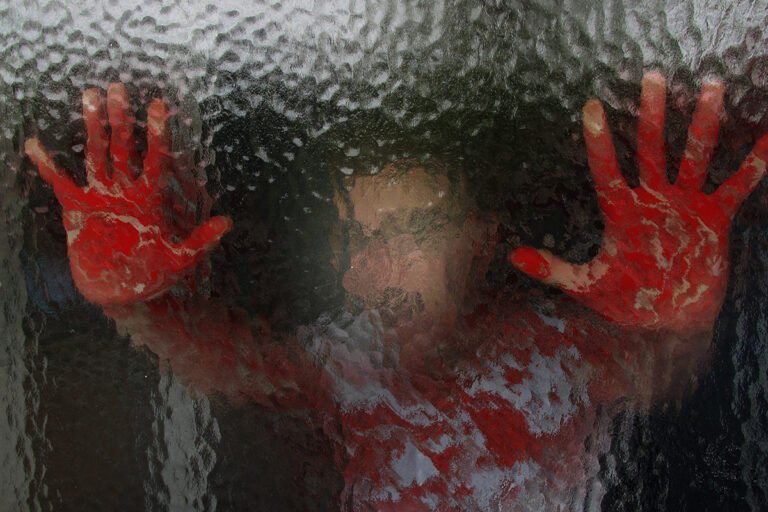Jephthah’s Conflict with Ephraim
12 The men of Ephraim were called to arms, and they crossed to Zaphon and said to Jephthah, “Why did you cross over to fight against the Ammonites and did not call us to go with you? We will burn your house over you with fire.” And Jephthah said to them, “I and my people had a great dispute with the Ammonites, and when I called you, you did not save me from their hand. And when I saw that you would not save me, I took my life in my hand and crossed over against the Ammonites, and the LORD gave them into my hand. Why then have you come up to me this day to fight against me?” Then Jephthah gathered all the men of Gilead and fought with Ephraim. And the men of Gilead struck Ephraim, because they said, “You are fugitives of Ephraim, you Gileadites, in the midst of Ephraim and Manasseh.” And the Gileadites captured the fords of the Jordan against the Ephraimites. And when any of the fugitives of Ephraim said, “Let me go over,” the men of Gilead said to him, “Are you an Ephraimite?” When he said, “No,” they said to him, “Then say Shibboleth,” and he said, “Sibboleth,” for he could not pronounce it right. Then they seized him and slaughtered him at the fords of the Jordan. At that time 42,000 of the Ephraimites fell.
Jephthah judged Israel six years. Then Jephthah the Gileadite died and was buried in his city in Gilead.
Ibzan, Elon, and Abdon
After him Ibzan of Bethlehem judged Israel. He had thirty sons, and thirty daughters he gave in marriage outside his clan, and thirty daughters he brought in from outside for his sons. And he judged Israel seven years. Then Ibzan died and was buried at Bethlehem.
After him Elon the Zebulunite judged Israel, and he judged Israel ten years. Then Elon the Zebulunite died and was buried at Aijalon in the land of Zebulun.
After him Abdon the son of Hillel the Pirathonite judged Israel. He had forty sons and thirty grandsons, who rode on seventy donkeys, and he judged Israel eight years. Then Abdon the son of Hillel the Pirathonite died and was buried at Pirathon in the land of Ephraim, in the hill country of the Amalekites.
(ESV)
Judges 12 Commentary
In Judges 12, the Ephraimites confronted Jephthah angrily for not calling them to battle, threatening to burn his house (Judges 12:1). Jephthah responded that he had called for their help, but they did not come, so he fought alone with the Lord’s help (Judges 12:2-3). A battle ensued between Gilead and Ephraim, with Gilead emerging victorious (Judges 12:4). The Gileadites controlled the Jordan River crossings and identified fleeing Ephraimites by their inability to pronounce “Shibboleth,” leading to the execution of 42,000 men (Judges 12:5-6).
Jephthah judged Israel for six years before his death (Judges 12:7). He was succeeded by three judges: Ibzan of Bethlehem, who had 30 sons and 30 daughters and judged for seven years (Judges 12:8-10); Elon of Zebulun, who judged for ten years (Judges 12:11-12); and Abdon of Pirathon, who had 40 sons and 30 grandsons, judging for eight years (Judges 12:13-15).
Troublemakers
To get a detailed context for this narrative, it is helpful to go back and read the Jephthah story from Judges 11. In that story, we read about Jephthah, a judge of Israel, who battled with the Ammonites over a land dispute, was victorious, and made a hasty vow with tragic consequences. Here in Judges 12, we pick up the story with those pesky Ephraimites making trouble once again.
The men of Ephraim confronted Jephthah, accusing him of not calling them to battle against Ammon, just as they had done with Gideon in Judges 8. Apparently, these guys had some serious FOMO when it came to fighting against the enemies of Israel. Unlike the diplomatic Gideon, Jephthah, a hardened warrior, responded aggressively. He asserted that he had called for their help, but they did not respond, so he fought alone and the Lord gave him victory. His speech was dramatic and highly self-centered, primarily emphasizing his role in the battle.
However, the Ephraimites were not innocent by any stretch. They had no reason to complain, but tensions escalated. Ephraim’s leaders insulted Jephthah’s people as fugitives. Essentially, they were condemning the tribes of East Jordan because they resided on the opposite side of the Jordan River, outside the central territory of the Promised Land.
Jephthah had heard enough. He gathered the men of Gilead and launched an attack against Ephraim. To prevent the Ephraimites from escaping, his forces secured the crossing points of the Jordan River. There, they devised a simple but deadly test: fugitives were asked to pronounce the word “Shibboleth.” Those who mispronounced it as “Sibboleth,” revealing their Ephraimite origin, were immediately executed. 42,000 lives were lost in the scuffle.
Needless to say, this was not the best way to handle the situation.
Pride
Chronic complainers often create a draining dynamic, especially when their constant need for validation can overshadow any rational conversation. This cycle can lead to frustration, as no matter how much we try to offer solutions or change their perspective, they continue to bring up more and more issues. It’s important to recognize that their complaints aren’t always about the situation at hand; rather, it’s about seeking a certain kind of attention. This desire for recognition and praise can become an unhealthy pattern, where nothing seems to satisfy them.
This was the case with Ephraim. They were more concerned about elevating their tribe than about the success of the nation as a whole. Instead of thanking their fellow Israelites in gratitude, they grumbled that they didn’t get to share in the credit. More than anything, they wanted to be praised and recognized. The root cause – pride.
You desire and do not have. You murder and covet and cannot obtain. You fight and wage war. You do not have because you do not ask. [3] You ask and don’t receive because you ask with wrong motives, so that you may spend it on your pleasures. [4] You adulterous people! Don’t you know that friendship with the world is hostility toward God? So whoever wants to be the friend of the world becomes the enemy of God. [5] Or do you think it’s without reason that the Scripture says: The spirit he made to dwell in us envies intensely? [6] But he gives greater grace. Therefore he says: God resists the proud, but gives grace to the humble.
James 4:2-6 CSB
James highlights the root cause of many complaints and quarrels – selfish desires stemming from pride. Although James’ context is prayer, the lesson is the same. People complain or fight because of internal battles and unmet desires. This passage emphasizes the need for self-examination and a shift in perspective from selfishness to a heart that is in alignment with God’s will. The way we do this is through Christ. When we are full of gratitude for what Christ has done for us and who we are in Him, we can let go of selfish ambition knowing that we have more than enough in Christ alone.
It seems the Ephraimites assumed that God had a high view of them as opposed to the other tribes. In the end, their selfishness (and Jephthah’s temper) resulted in 42,000 lives being lost. Unfortunately, the people of Ephraim do not learn their lesson after this tragic encounter. Later, when the kingdom divides into the north and south, it is none other than the Ephraimites who are at the center of that controversy once again.




